Dragon’s Dogma: Dark Arisen PC Review
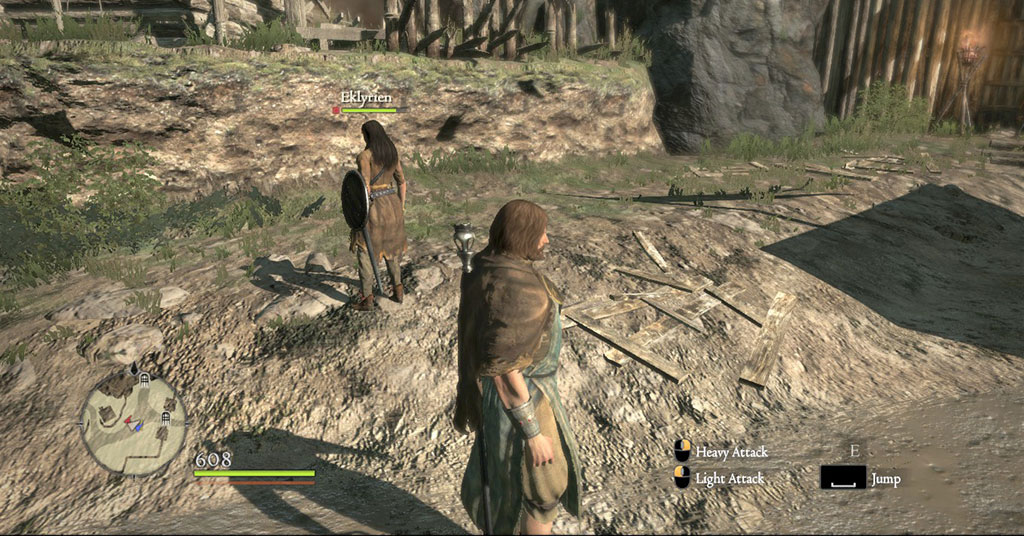
Not all ports are the same
Dragon’s Dogma goes out of it’s way to prove that point. Certainly, we have all seen games ported over as a mess. The control schemes that don’t work well, the graphics which actually seem like a downgrade years later, and so on. You won’t find that here. You’ll find a game which lives up to what it was before. One where Capcom put in not only the time and effort to create a control scheme which works, but which feels like it was made for the game.
Beyond that, the graphics team did an excellent job adapting the game to PC. Not only did they create a crisp translation, they improved a few areas beyond what might be expected. Even more importantly, everything works. The game port is a solid example of virtually bug free gaming. As a port during the era of downloadable content and bug fixes I expected a few issues to have slipped by, but I found none.
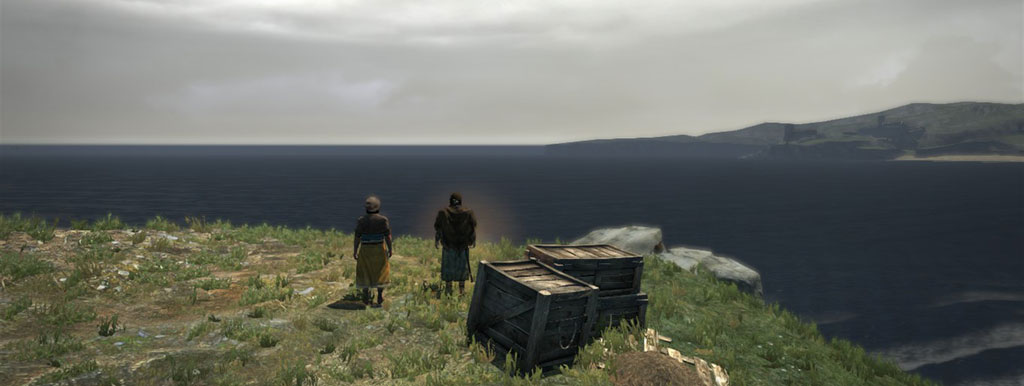
That is not to say the game is perfect. It has flaws, including the use of enemies which vastly outlevel you in the quest flow. That problem can make certain quests feel far too difficult. In turn, that can lead to issues where you go off questing elsewhere, and certain quests can cause others to change. One of the most noted problems is that one of the earlier quests completely destroys an important NPC if not done before a certain other quest. Before you head into the capital city and complete story quests, do make sure to save a girl who is worried about you! Otherwise she will be gone until you start a new game, either from scratch or post completion with bonuses. I didn’t note any other major quest flow issues with NPCs being lost, but such issues may exist.
Other additions like a speedrun mode and a hardcore mode offer additional gameplay opportunities. Whether you will like them or not depends largely on your own preferences, but they are nice options to have!
Getting started:
You start the game in the past, where a previous Arisen is searching for the Dragon. While I don’t want to go too far into spoilers, this is definitely easy mode with very low danger. After resolving the events of the past to a certain point, in one little dungeon, you will begin again, this time creating your character. The character creator isn’t anything too fancy, but it does give a solid set of options to make various styles of characters on a level that is on the higher end overall among game character creators.
Moreover, you actually create two characters. The second is your constant companion. I’ll get to that more later, but after a short time in the game you will be making a second character.
The initial events of the game are cutscene heavy, and pit you against the titular opponent of the game, the Dragon. In the case of this game, that is a specific name. The Dragon exists, and with it the Arisen. For those having not played, again, I am avoiding spoilers here the best I can! Thus if you see Dragon in capitals, it is because it is a specific name, not just a description.
Once you do get done with all the cutscenes, you will start off in town with a new and very personal quest to solve. Set off, but beware. Combat in this game quickly grows in difficulty. If you are not prepared for an area your adventure will end in a gruesome demise. This is especially true since the only real indicators of advanced creatures, other than bosses, are how they look. Sometimes you will end up fighting a higher level or otherwise dangerous opponent which can leave you in bad shape.
Pawns:
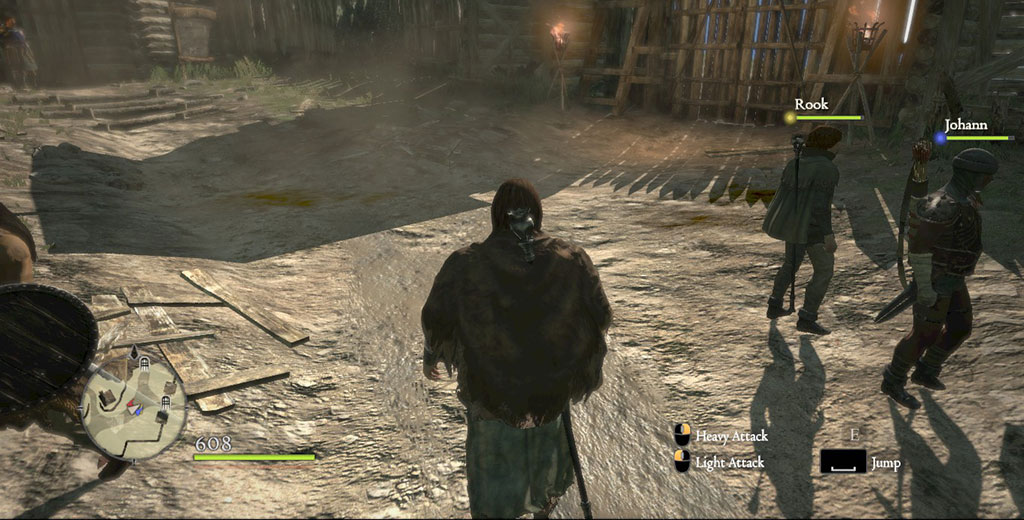
Remember that second character I talked about? They are something called a ‘Pawn.’ Pawns are some sort of alternate dimension summoned allies. They are simultaneously one of the most interesting and most frustrating aspects of the game. I’ll get into more details here, because Pawns will be a huge portion of why you succeed or fail. Most importantly, replacing older Pawns will be. This is because hired Pawns do not gain levels. You and your personal Pawn do, but the others stay exactly as they were when hired. Replacing them regularly with others close to your level will keep combat from becoming very difficult.
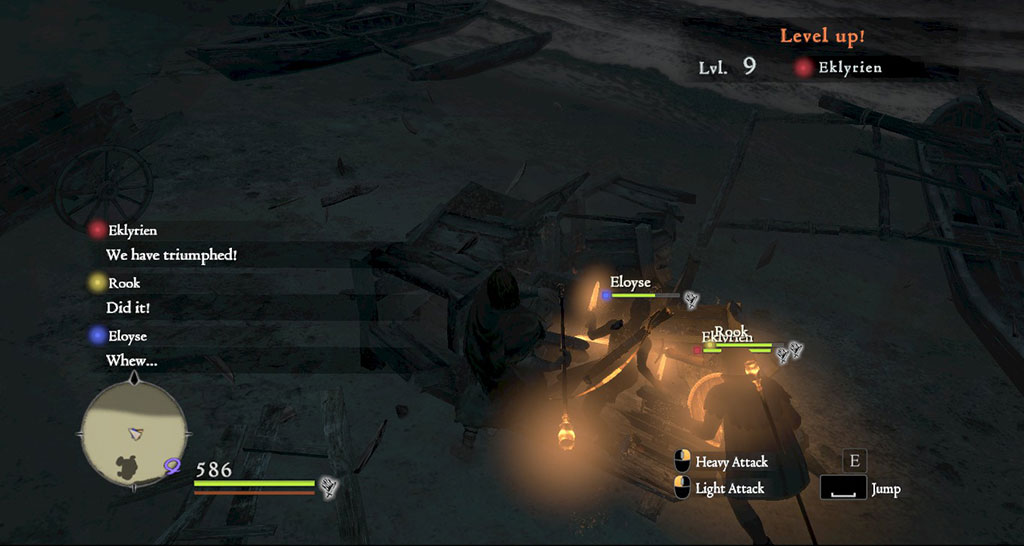
Each pawn has their own personality. The results are compiled from choices made during character creation for each Pawn. There are a handful of Pawns around the game that the designers made, but most of the Pawns you meet will be those made by other players. Your own personal Pawn can also join the game of others, potentially coming back with gifts.
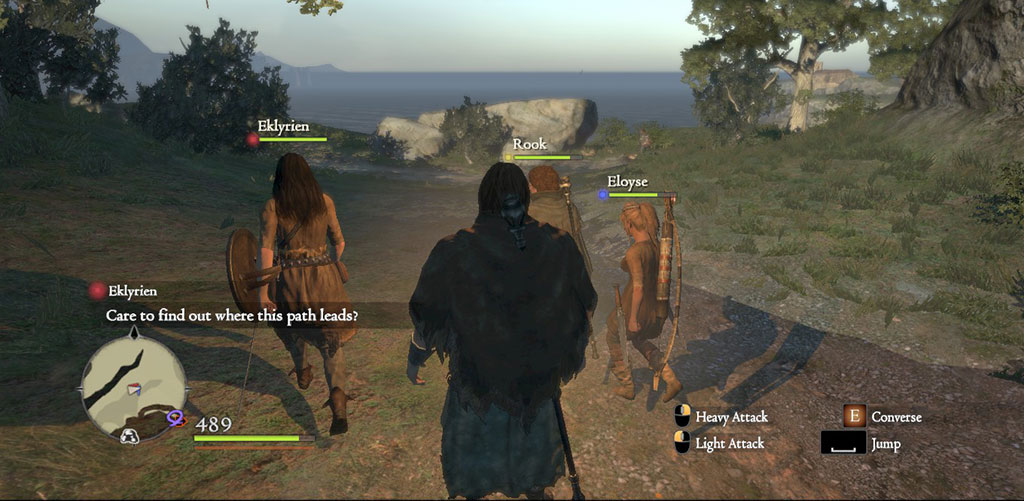
Further, each Pawn has other personal aspects to them, such as the knowledge they have obtained about the quests in the game. This can alter what they say when you are attempting to complete a quest. Finding a Pawn that knows the quest you are on can make life much easier, or it can be a matter of not really mattering. It depends on how tricky the quest happens to be.
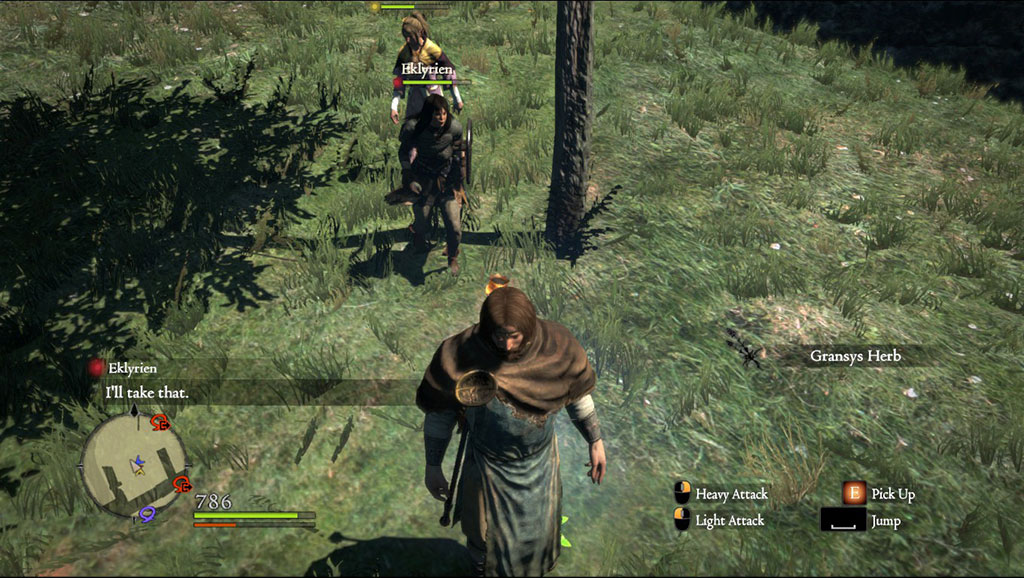
Pawns also loot items for you. This is another aspect where Pawn personality comes into play. Depending upon the options selected a Pawn may loot more often and quicker. Sometimes it even goes so far as for them to stop fighting and loot during battle. Having Pawns loot at a moderate rate and pick up items after battle is very useful, and you lose nothing. Having them stop fighting can make a hard quest turn deadly. If you happen to have made an error with regard to your own Pawn, you can alter their personality. There are items which help with this. Even better, many things can be altered just by talking with them.
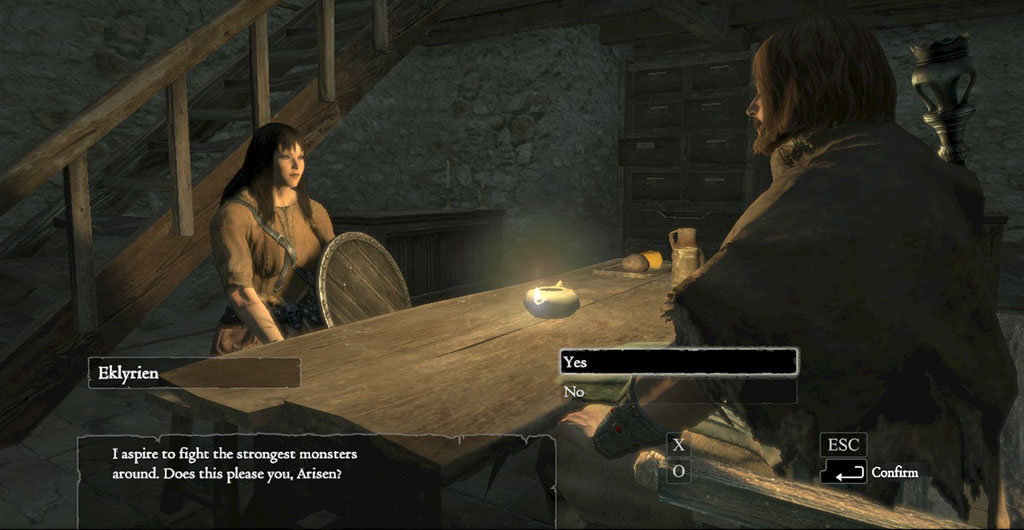
Simply find a good table at a local Pawn guild and sit down with your personal Pawn. They will ask you questions about how they are performing and your selected response will alter their behavior slightly. Enough times sitting and talking, and they can be drastically different from their previous self.
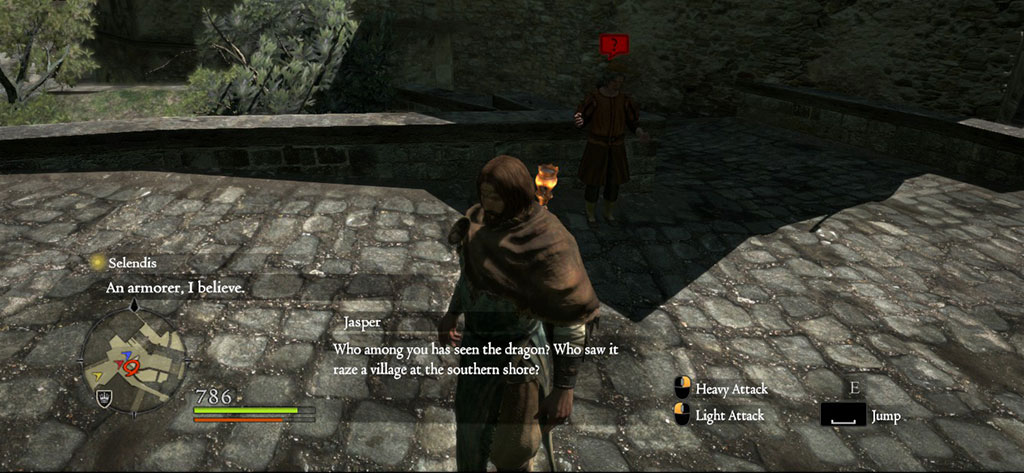
The final thing you need to know about Pawns is how to find them. You will encounter Pawns left in your local in game area regularly, but they might not be the right level or combat style for you. Instead, you can access a Rift Stone and enter the Rift. The Rift connects to other worlds, including the world of the Pawns. You won’t cross over, though, but rather will recruit those who join you between worlds. There, you can recruit from a number of Pawns. You can also send them away and get more potential recruits to show up.
Questing:
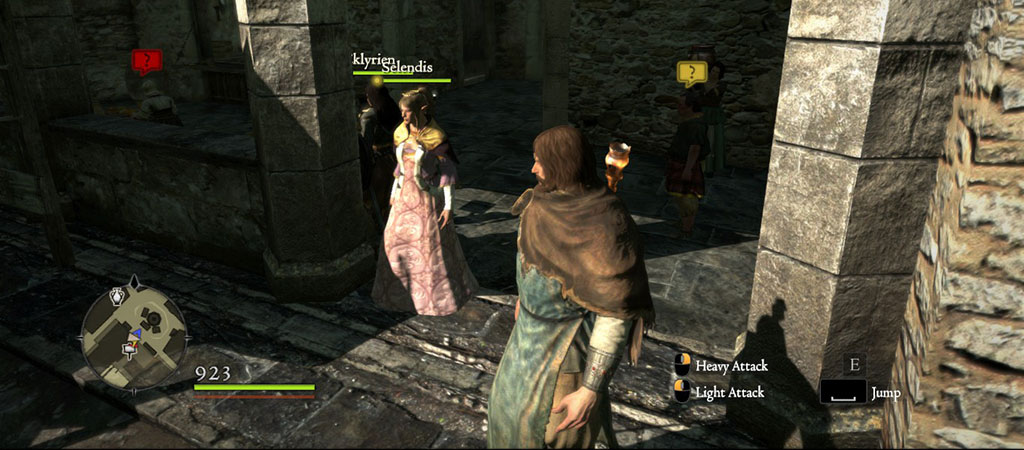
Quests are your primary source of larger amounts of xp and rewards. Although you can certainly level off combat, quests offer massive rewards. You will get more xp and rewards from combat overall, but quests offer large amounts when completed. As with most newer games, quests are marked on your minimap. People related to quests also have icons over their heads. In the picture above you can see both. In the picture below you will see two colors of marker. The red markers are you're focused quest and appear on the minimap. The yellow markers are for all non-focused quests, and appear on NPCs only.
There are three important sources of quests. The first is NPCs. The second are system messages, which occur when you have progressed far enough to have met the unlocking requirements. Note that meeting those requirements in no way means you are ready to face those challenges! The third is quest boards. Quest boards offer a variety of quests, some of which can influence other things in the game. Most notably, there are missions which raise how an individual NPC relates to you. They also offer a multitude of side quests to help you gain levels.
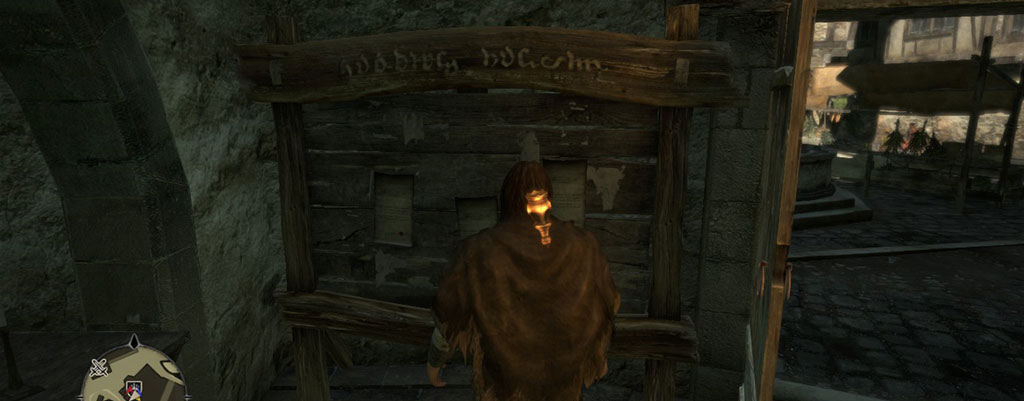
Quests often need items or monster kills that are in an area you have already cleared. There is no need to worry though. Each area will slowly recover, allowing you to loot and pillage the countryside once again!
Systems:
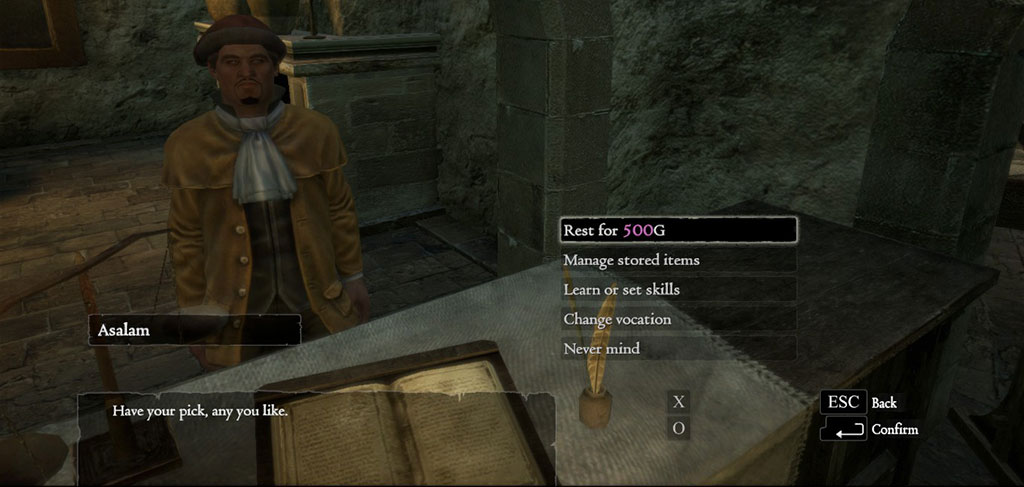
One of the systems you will be frequently using is the Inn. Inns aren’t just a place for resting in Dragon’s Dogma. They do allow you to rest, restoring HP to all members and updating your personal Pawn for online use. Resting also passes time. However, it is an inn’s other services that you will frequently need. Inns act as banks and training grounds. Banking items is extremely useful. It stops time sensitive items from decaying. Items will tell you if they are time sensitive in the description. It also allows you to carry less weight, which means you move quicker and can loot more. Training allows you to not only learn and upgrade skills, but to even change your class. Since you can use passives from multiple classes you may wish to progress in many different classes, called vocations in game.
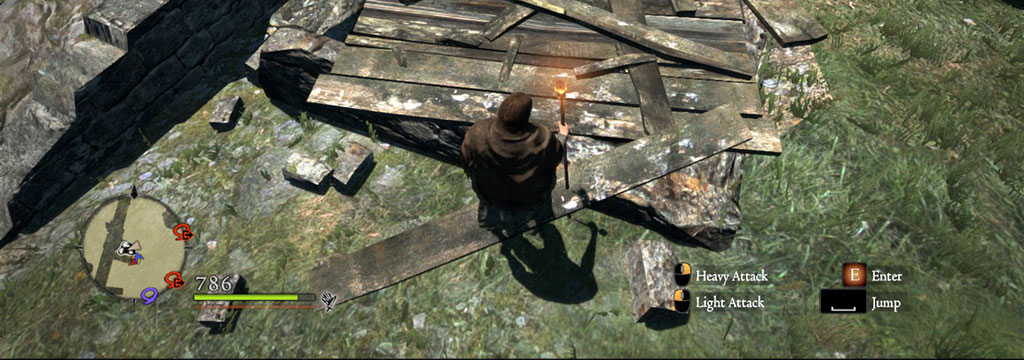
Of course, to get to certain areas you must find an entryway. Not all entryways are equal, and some are back doors which are locked until you access them from the other side. Thankfully your map and Pawns will help you figure out when you have found a new area to access.
Accessing the map, quest journal, options, and several other things are done via the game menu. To use this menu just hit the escape key. Not only can you save on the fly, but you can look up your own in game history. Utilizing the map via this menu is probably one of the least intuitive systems in the game, but it slowly becomes more familiar.
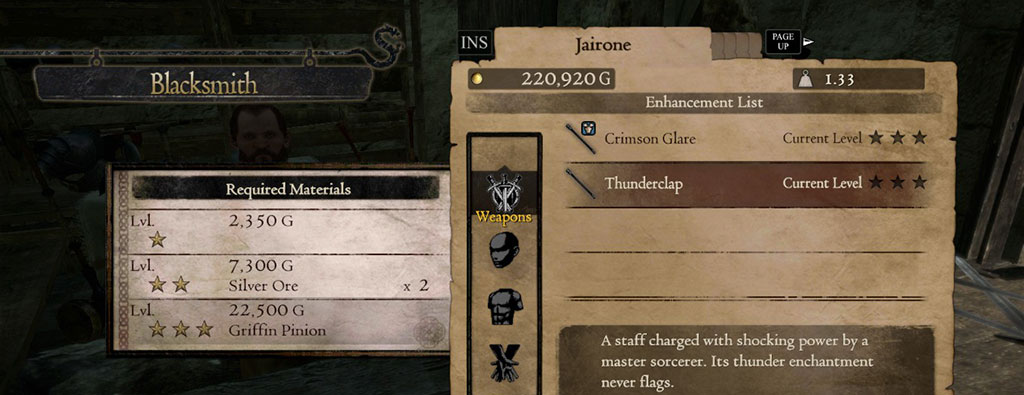
As you grow more powerful you will find better equipment. However, sometimes you could use a boost to your power before you find new gear. The upgrade system is here to help! In general, each stage of upgrade to a piece of equipment requires more and rarer items. It also boosts the power higher with each given stage. There are three tiers to each item, and upgrading anything you plan on using will help make combat less painful.
A few final notes:
You may or may not have noticed, but several of the images showed health bars that were not full. This is part of the combat design in Dragon’s Dogma. Most of the healing you will do in combat is from magical healing spells. You slowly lose a portion of your maximum HP when you are damaged, and those spells do not recover that maximum HP. This can be reset, returning your full vitality, via several methods. You could rest at an Inn and update your personal Pawn online. You or your personal Pawn could level up. Any party member can also restore that missing maximum health via healing items.
As you go through the game, NPCs remember your actions. You can romance them, even giving gifts. Depending upon how you have acted and what you have done, each NPC will treat you in a different manner. Certain gifts match up best with certain NPCs. Make sure you read the descriptions to maximize your effectiveness.
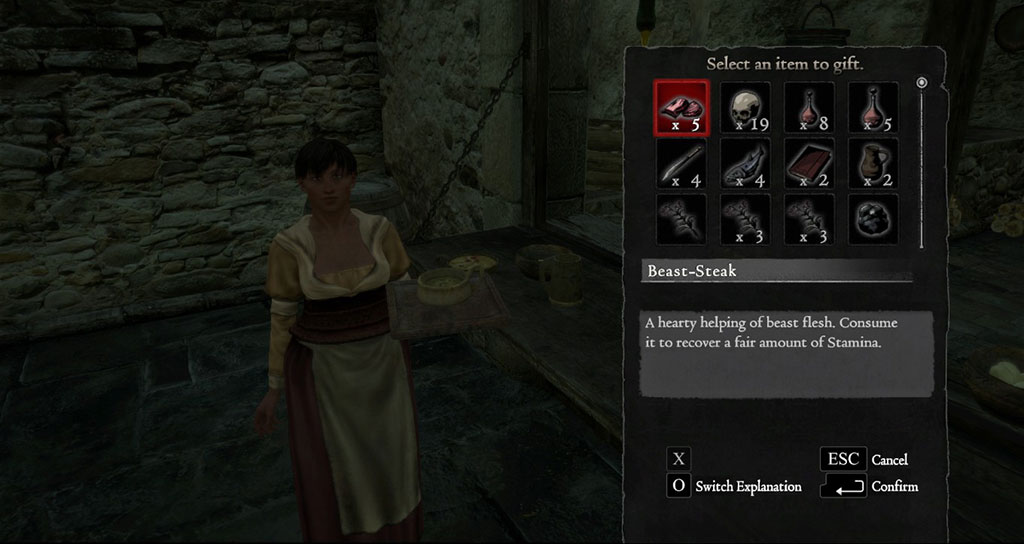
The game only allows for one save. It does allow backtracking to a restore point if you saved in a dangerous area and cannot make it to safety, usually the last time you were in a town. The one save system may be frustrating if there are two people wanting to play. It also does not tell you what general level or order of questing would be good for you.
Overall Dragon’s Dogma: Dark Arisen is an excellent port with some issues which remain from the original title. If you haven’t played the game, it is certainly acceptable to pick it up on PC. It is even better if you can play with friends, and share pawns with regular updates.
About the Author
Jairone
Senior Editor
Robert joined Gaiscioch during the Rift chapter, and decided to stick around because the people are awesome! He has a long history of playing games, mostly RPG or Strategy, and has played MMOs since they were born of MUDs.
Aside from his gaming, he also enjoys reading and cooking. Robert has also been previously published as a contributor with Rift Junkies for several articles during the 'Storm Legion' expansion. He does not always use the moniker 'Jairone' but it is a frequent choice in honor of one of his Grandfathers, as it is based on his middle name of Jerome.
